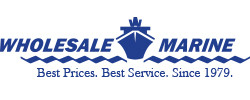Product Listing
Protect your Boat with Reliable Detection Systems
A boat alarm system is one of the simplest ways to prevent major onboard hazards. From fuel vapor leaks to carbon monoxide buildup, these devices alert you before a small issue becomes a serious emergency.
At Wholesale Marine, we carry marine alarms from trusted brands engineered for reliability in harsh marine conditions. Choose from:
- Vapor alarms: Detect gasoline or propane fumes before they ignite.
- CO and CO2 alarms: Monitor enclosed cabins for invisible, odorless gases.
- High-water and bilge alarms: Warn you of rising bilge levels or pump failures.
- Battery voltage and temperature alarms: Protect your electrical systems and prevent overloads.
Every alarm is designed for easy installation and long-term dependability - ideal for recreational, commercial, and charter vessels alike. For full protection, pair your vapor detection system with a marine fire extinguisher and signaling device to stay compliant with U.S. Coast Guard safety standards.
Boat Alarm Maintenance Tips
Regularly test your alarms and replace batteries or sensors according to manufacturer recommendations. Inspect wiring and sensors for corrosion or loose connections. Vapor and CO alarms typically have a service life of 5-7 years, so plan replacements proactively.
For complete protection, pair your vapor detection system with fire extinguishers and signaling devices to meet Coast Guard-recommended safety standards.
Frequently Asked Questions About Marine Alarms
What types of boat alarms are available?
Boat alarms include vapor detectors, CO and propane alarms, bilge or high-water alarms, and battery monitors - each designed to alert you to different onboard hazards.
Do I need a vapor or CO alarm on my boat?
Yes. Boats with enclosed cabins, propane appliances, or fuel engines should have both vapor detection and CO alarms installed for safety and compliance.
How does a high-water or bilge alarm work?
These alarms use float switches or sensors to detect rising water levels and sound an audible alert before flooding occurs.
Where should marine alarms be installed?
Install vapor alarms near engines or fuel tanks, CO detectors in enclosed cabins, and high-water alarms in bilge compartments or low points of the hull.
Related Marine Safety Gear
Complete your onboard safety system with Coast Guard-approved marine gear from Wholesale Marine:
